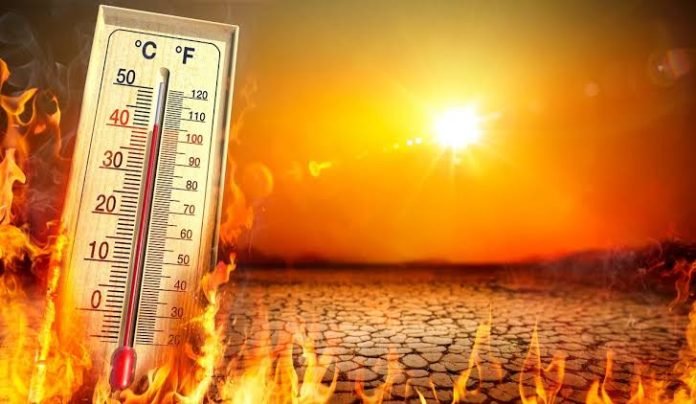Pakistan Endures Scorching Heatwave: Five Cities Rank Among World’s Hottest
Pakistan is currently grappling with a relentless and dangerous heatwave. According to meteorological reports and global weather-tracking indices, five Pakistani cities have been ranked among the 15 hottest places on Earth. The sweltering conditions are pushing daily life to the brink, with serious implications for public health, economic productivity, and social well-being.
Jacobabad: At the Epicenter of the Heat
Topping the charts as the country’s—and currently the world’s—hottest city is Jacobabad, where daytime temperatures have soared to a staggering 49°C (120°F). Known for its record-breaking heat in previous years, Jacobabad now once again leads global heat charts. This extreme temperature poses a substantial risk to human health and infrastructure alike.
Heat Index & Nighttime Temperatures
Though official night-time data for Jacobabad may not be updated every hour, prolonged daytime heat tends to keep even the nights uncomfortably warm, exacerbating health risks since cities fail to cool off adequately overnight.
Other Cities Under the Searing Sun
Alongside Jacobabad, several other cities are also experiencing dangerous heat:
-
Sibi: Exceeding 47°C
-
Jhelum: Reporting temperatures above 46°C
-
Bahawalnagar: Crossing 46°C
-
Dera Ismail Khan: Also above 46°C
Each of these cities is not only suffering intense heat but is also struggling with associated public health and infrastructure pressures.
The Human Toll: Heat’s Impact on Daily Life
Schools Shut or Disrupted
The heatwave has forced many schools to suspend in-person classes, particularly for younger students. Afternoon exams and regular school hours are often canceled to prevent heat-related illnesses.
Outdoor Workers Endangered
Laborers, street vendors, delivery personnel, and others working outdoors face heightened risks—heat exhaustion, stroke, dehydration, and chronic fatigue. Their livelihoods may force them outside anyway, increasing vulnerability.
Vulnerable Groups Most at Risk
-
Children—especially those spending time outdoors—are susceptible to heatstroke and dehydration.
-
Elderly individuals, with less efficient body-temperature regulation, face much higher risks.
-
Those with chronic conditions (heart issues, respiratory illnesses) are likely to suffer from exacerbated symptoms under scorching conditions.
Medical Concerns: Health Risks of Extreme Heat
Health experts warn that excessive heat can result in multiple health complications:
-
Heatstroke: Life-threatening, involving elevated body temperature and possible organ failure.
-
Heat exhaustion: Characterized by heavy sweating, weakness, dizziness, and nausea.
-
Severe dehydration: Can lead to kidney damage, cognitive decline, and cardiovascular stress.
-
Fatigue and cognitive effects: Leading to reduced productivity, impaired decision-making, and increases in accidents.
Hospitals in cities such as Jacobabad have reported increased admissions, with health services under strain from dehydration-related emergencies and heat-induced illnesses.
Government & Health Expert Recommendations
Authorities and health professionals have issued these critical recommendations:
-
Stay indoors during peak hours (11 a.m.–4 p.m.)
Remaining inside, especially in shaded or climate-controlled environments, is essential. -
Hydrate frequently
Intake of water, electrolyte solutions, fresh fruit juice, or ORS—particularly for those who work outdoors—is highly advised. -
Wear light, breathable clothing
Fabrics such as cotton, linen, or muslin in pale and light tones can help reduce heat absorption. -
Avoid strenuous activity during peak heat
Any intense physical labor should be shifted to early mornings or late evenings. -
Rest in shaded areas
Outdoor workers should rest in shade, take breaks, and have access to water. -
Look out for vulnerable individuals
Help children, elderly relatives, and those with chronic illnesses to maintain hydration and stay cool.
Preventive Measures for Workers & Parents
Outdoor workers are advised to:
-
Carry plenty of water and replenish frequently.
-
Take breaks in the shade every 30–60 minutes.
-
Use wet towels or cooling devices, such as fans or portable mist sprayers.
-
Wear wide-brimmed hats or safety helmets with shaded covers.
Parents are urged to:
-
Keep children at home during the midday heat.
-
Ensure indoor environments are well-ventilated or air-conditioned—fan usage in safe settings can help.
-
Offer water-rich fruits like watermelon and citrus to keep children hydrated.
Community Awareness & Preparedness
Campaigns across radio, television, and social media are actively alerting the public to take heightened precautions during this heatwave. Community centers have been mobilized as cooling shelters, offering fans, shade, rehydration solutions, and first aid. Public outreach includes:
-
Local weather alerts through Pakistan Meteorological Department updates.
-
SMS and app-based reminders about hydration and heat-safety tips.
-
Advisories for school closures during peak heat days.
Infrastructure Stress: When the Heat Becomes a National Concern
Energy Demand Surge
Record-breaking temperatures are causing a spike in electricity usage due to the skyrocketing use of air-conditioners and fans, risking load-shedding and power outages. This further diminishes public resilience against heat.Hottest
Road Surface Vulnerability
Prolonged extreme heat can lead to tar melting, creating dangerous imperfections and potholes that compromise road safety.
Water Resources Under Pressure
Rising demand for cooling and drinking water, combined with potential water source scarcity, may place additional pressure on already strained utilities in affected regions.Hottest
Forecaster Insights & Outlook
According to the Pakistan Meteorological Department (PMD), this heatwave is “severe and widespread,” fueled by a persistent high-pressure front over the subcontinent. Forecasters warn temperatures in Jacobabad and surrounding areas could remain near 50°C for several consecutive days.
While daytime peaks may ease slightly, overnight temperatures are expected to stay uncomfortably high, providing little relief. However, more seasonal summer winds and monsoon shifts expected in the next week may bring temporary cooling.
Israel-Iran Conflict Escalates: Nuclear Sites Bombed, Middle East Braces for War
Read this Articals
Protective Actions for Citizens
To withstand the intensity of this heatwave, citizens should:
-
Install window shades or reflective films to keep indoor environments cooler.
-
Maximize evening ventilation, employing ceiling fans or cross-ventilation.
-
Avoid heavy meals; instead, opt for light, hydrating foods like fruits and salads.
-
Use portable fans or misting accessories to reduce body heat outdoors.
Government Response & Preparedness Planning
The government and provincial health departments are proactively working to:
-
Distribute free electrolyte packets and oral rehydration solutions to the public.
-
Establish temporary cooling stations in vulnerable communities, especially slums, street markets, and transit hubs.
-
Coordinate emergency medical assistance with primary care facilities.
-
Provide dedicated hotline numbers for citizens to report heat-related distress or emergencies.
-
Ensure water tankers and supply trucks reach areas likely to experience outages.
Seeking Hope: Monsoon Relief Ahead?
While the current outlook remains bleak, meteorologists are hopeful that the South Asian monsoon system may move into Pakistan within the next 7–10 days, bringing much-needed rain and a break from the punishing heat. Early signs include:
-
Increased humidity and cloud cover over mountainous regions.
-
Western disturbances from the southwest expected to push monsoon troughs northward.
These developments may bring local thunderstorms and partial temperature relief, although extreme caution remains necessary in the interim.
Conclusion: Collective Responsibility in Crisis
The ongoing heatwave in Pakistan—marked by Jacobabad’s record 49°C and similarly extreme temperatures in Sibi, Jhelum, Bahawalnagar, and Dera Ismail Khan—demands urgent attention and action from individuals, communities, and government authorities alike.Hottest
By adopting recommended preventive steps—adequate hydration, avoiding peak hours, using cooling shelters, and offering special care to vulnerable populations—heat-related health risks can be significantly reduced. Infrastructure measures such as load management, road maintenance, water distribution, and emergency planning remain essential in bolstering resilience.Hottest
As the nation awaits relief from the monsoon, public vigilance, efficient governance, and community empathy will be the cornerstone of survival during this extraordinary climatic challenge. Stay safe, stay hydrated, and please look out for one another.Hottest
Trending Tags (SEO Keywords)
-
Pakistan Heatwave 2025
-
Jacobabad 49°C
-
Sibi Extreme Heat
-
Heat Safety Pakistan
-
Avoid Heatstroke
-
Pakistan Meteorological Department
-
Cooling Shelters
-
Monsoon Relief Pakistan
-
Energy Load Shedding Heat
-
Public Health Advisory Heatwave
-
Vulnerable in Heat
-
Outdoor Worker Safety
-
Air Quality Heat
-
Hydration Tips
-
Government Heatwave Response
- These developments may bring local thunderstorms and partial temperature relief, although extreme caution remains necessary in the interim.




